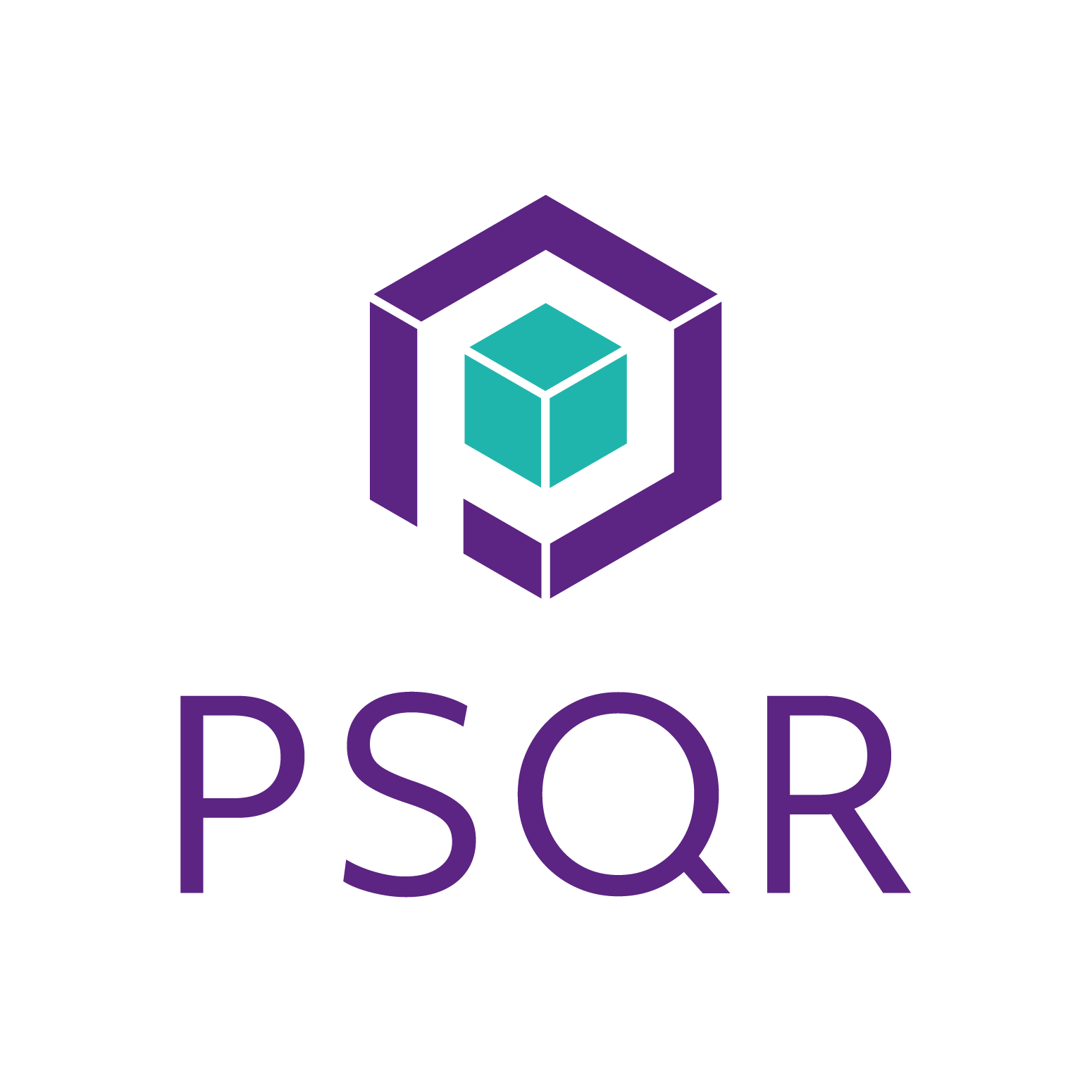Description

FactWise

Multiorders

Saga Suite
Comprehensive Overview: FactWise vs Multiorders vs Saga Suite
FactWise
a) Primary Functions and Target Markets:
FactWise is a procurement management platform designed to streamline and optimize the procurement processes for businesses. It primarily focuses on automating purchase orders, managing suppliers, and enhancing the procurement lifecycle. Its target market includes medium to large enterprises across various industries that need efficient procurement solutions to enhance their supply chain management.
b) Market Share and User Base:
FactWise is a niche player in the procurement software market. While it may not have the extensive market share of some larger, more established procurement platforms, it attracts a user base interested in nuanced supplier management and procurement automation.
c) Key Differentiating Factors:
- Emphasis on Automation: FactWise's platform automates many routine procurement tasks, allowing businesses to reduce manual intervention.
- Supplier Management: Offers enhanced capabilities for managing supplier relationships and performance.
- Data-Driven Insights: Provides analytical insights to improve decision-making in procurement activities.
Multiorders
a) Primary Functions and Target Markets:
Multiorders is a multichannel inventory management and order fulfillment tool designed for e-commerce businesses. It helps streamline the process of managing products across multiple sales channels, handling shipping, and integrating with various e-commerce platforms like Amazon, eBay, and Shopify. Its primary target market is small to medium-sized e-commerce retailers.
b) Market Share and User Base:
Multiorders holds a moderate market share within the e-commerce inventory management space. It is favored by small to medium-sized businesses looking for an affordable solution to manage multi-channel sales and inventory without the complexity of larger enterprise systems.
c) Key Differentiating Factors:
- Multi-Channel Integration: Seamlessly integrates with various e-commerce platforms, enabling unified management.
- Inventory Synchronization: Enables real-time inventory updates across all sales channels.
- User-Friendly Interface: Known for its ease of use, making it accessible for businesses without extensive technical expertise.
Saga Suite
a) Primary Functions and Target Markets:
Saga Suite is an enterprise resource planning (ERP) solution designed for large enterprises. It offers a comprehensive suite of applications for managing business processes, including finance, human resources, supply chain, customer relations, and more. Saga Suite is targeted at large-scale organizations that need robust, scalable ERP solutions.
b) Market Share and User Base:
Saga Suite has a footprint in the large enterprise market, although it faces competition from more established ERP providers like SAP, Oracle, and Microsoft Dynamics. Its user base consists of organizations looking for a customizable and integrated approach to ERP solutions.
c) Key Differentiating Factors:
- Comprehensive ERP Solution: Provides a wide range of integrated modules that accommodate diverse business functions.
- Scalability and Customization: Offers high scalability and customization to cater to the specific needs of large enterprises.
- Industry-Specific Solutions: Tailors its offerings to meet the needs of specific industries, enhancing relevance and efficacy.
Comparative Summary
-
Target Market: FactWise and Multiorders primarily serve small to medium-sized businesses, with FactWise focusing on procurement and Multiorders on e-commerce inventory. Saga Suite, on the other hand, targets large enterprises with its comprehensive ERP solution.
-
Market Share and User Base: FactWise and Multiorders cater to niche markets, with their user bases drawn from businesses that prioritize specific functionalities like procurement automation or multi-channel inventory management. Saga Suite appeals to larger organizations requiring broad, customizable ERP capabilities.
-
Differentiation: FactWise stands out with its procurement automation and supplier management capabilities, Multiorders is distinctive for its user-friendly, multi-channel e-commerce integrations, and Saga Suite is noted for its comprehensive, scalable ERP offerings tailored to large enterprises.
Contact Info

Year founded :
Not Available
Not Available
Not Available
United States
http://www.linkedin.com/company/factwise-ai

Year founded :
2019
+44 113 314 3331
Not Available
Lithuania
http://www.linkedin.com/company/multiorders

Year founded :
Not Available
Not Available
Not Available
Not Available
Not Available
Feature Similarity Breakdown: FactWise, Multiorders, Saga Suite
To provide a detailed feature similarity breakdown for FactWise, Multiorders, and Saga Suite, let's compare them across the specified dimensions. Please note that the specifics can vary based on software updates and custom implementations, but I'll provide an overview based on common knowledge as of my last update.
a) Core Features in Common
-
Inventory Management: All three solutions offer robust inventory management capabilities, allowing users to track stock levels, manage warehouse locations, and handle multiple product variations.
-
Order Management: FactWise, Multiorders, and Saga Suite provide order management features that support the processing of customer orders, the status tracking of orders, and integration with multiple sales channels.
-
Multi-channel Selling: They all support integration with various e-commerce platforms and marketplaces, enabling businesses to sell across different channels from a single interface.
-
Reporting and Analytics: Each platform offers reporting and analytics tools that help users generate insights from sales data, inventory levels, and performance metrics to make informed decisions.
-
Integrations: They all provide the capability to integrate with third-party software solutions, although the range and ease of integration can vary significantly between them.
b) User Interface Comparison
-
FactWise: FactWise generally offers a user-friendly, streamlined UI with a strong focus on procurement and supply chain management. It tends to emphasize ease of navigation, making it suitable for users who require efficient order and vendor management processes.
-
Multiorders: Multiorders is known for its intuitive and highly visual interface, which makes it accessible to small and medium-sized businesses. It often highlights quick access to multi-channel integrations and offers dashboards that simplify order processing across platforms.
-
Saga Suite: Known for its comprehensive and modular design, Saga Suite offers a more enterprise-focused application with a complex UI that supports a wide range of business functionalities. This can lead to a steeper learning curve compared to the other two, but it provides greater customization and depth of features.
c) Unique Features
-
FactWise:
- Procurement Specific Features: FactWise excels in procurement efficiency with features like vendor management, RFQ (Request for Quotation) automation, and strategic sourcing. This specialization sets it apart for businesses particularly focused on optimizing procurement.
-
Multiorders:
- Shipping Management and Label Printing: Multiorders stands out with its strong shipping management capabilities, which include direct integrations with various courier services and the ability to print shipping labels, streamlining the fulfillment process.
-
Saga Suite:
- Highly Customizable ERP Modules: Saga Suite distinguishes itself with its customizable ERP modules that cover a wide array of business processes beyond inventory and order management, including accounting, CRM, and HR functionalities. This makes it highly flexible for mid-size to large enterprises needing a comprehensive business management solution.
Each platform has its strengths, and the choice between them typically depends on organizational needs, size, and specific functionalities required. It's important for businesses to consider demoing these tools to better understand how they align with their processes and workflows.
Features

Not Available

Not Available

Not Available
Best Fit Use Cases: FactWise, Multiorders, Saga Suite
To determine the best fit use cases for FactWise, Multiorders, and Saga Suite, it's important to understand the strengths and target markets of each of these platforms. Here's a comprehensive breakdown:
FactWise
a) For what types of businesses or projects is FactWise the best choice?
FactWise focuses on procurement and supply chain management solutions. It is ideal for:
- Manufacturing Companies: Firms needing efficient supply chain operations to manage suppliers, purchase orders, and inventory.
- Large Enterprises: Businesses with complex procurement requirements and multi-tiered supplier networks.
- Projects with High Procurement Needs: Organizations that have significant purchasing volumes and require streamlined supplier interactions.
d) Industry verticals or company sizes catered to:
FactWise caters primarily to mid-sized to large enterprises in industries like manufacturing, automotive, aerospace, and construction. Its robust features suit companies looking for deep insights into their supply chain.
Multiorders
b) In what scenarios would Multiorders be the preferred option?
Multiorders is an inventory and order management tool ideal for:
- E-commerce Businesses: Retailers selling across multiple online platforms like eBay, Amazon, and Shopify that require integration and synchronization of orders and inventory.
- Small to Medium Enterprises (SMEs): Businesses needing affordable solutions for managing multi-channel sales without extensive IT infrastructure.
- Retailers with Physical and Online Stores: Companies needing a centralized system to manage inventory across different sales channels.
d) Industry verticals or company sizes catered to:
Multiorders primarily serves small to medium-sized e-commerce businesses. It supports various industries such as retail, electronics, fashion, and more, providing them with the tools to handle order processing and shipping efficiently.
Saga Suite
c) When should users consider Saga Suite over the other options?
Saga Suite is focused on project management and collaboration. It’s suitable for:
- Project-Based Organizations: Companies that require robust project tracking, task management, and team collaboration tools.
- Consulting Firms and Creative Agencies: Businesses needing to manage client projects, timelines, and resources easily.
- Organizations Emphasizing Team Collaboration: Companies prioritizing internal communications and collaboration to enhance productivity.
d) Industry verticals or company sizes catered to:
Saga Suite is versatile, catering to various industries such as marketing, IT, construction, and consulting. It's flexible enough for small teams to large organizations that need comprehensive project management capabilities.
In summary, FactWise is optimal for large-scale businesses with complex procurement needs, Multiorders is best for SMEs in e-commerce seeking multi-channel inventory management, and Saga Suite is advantageous for project-centric organizations demanding robust collaboration and project management tools. Each platform serves different company sizes and industries based on their specific operational requirements.
Pricing

Pricing Not Available

Pricing Not Available

Pricing Not Available
Metrics History
Metrics History
Comparing teamSize across companies
Conclusion & Final Verdict: FactWise vs Multiorders vs Saga Suite
To provide a comprehensive conclusion and final verdict on FactWise, Multiorders, and Saga Suite, it's essential to evaluate each product based on various factors such as features, pricing, user experience, scalability, and customer support. Here's a detailed analysis:
a) Best Overall Value:
- FactWise might offer the best overall value for users primarily focused on cost-effective procurement solutions. It typically excels in providing efficient purchasing management tools and analytics.
- Multiorders likely stands out for businesses that need robust inventory and order management capabilities across multiple sales channels, offering strong integrations that can streamline operations.
- Saga Suite might be the best choice for enterprises needing comprehensive end-to-end resource planning, including CRM, accounting, and supply chain management, often appealing to larger organizations with complex needs.
b) Pros and Cons of Each Product:
-
FactWise
- Pros:
- Cost-effective procurement solution.
- User-friendly interface with streamlined purchasing processes.
- Strong analytics and reporting features.
- Cons:
- Limited in scope; may not support complex or multi-departmental needs.
- Potentially fewer integration options compared to broader suites.
- Pros:
-
Multiorders
- Pros:
- Excellent for managing inventory and orders across multiple sales channels.
- Integrates with a wide range of platforms (eCommerce, shipping, etc.).
- User-friendly with a focus on simplifying multi-channel operations.
- Cons:
- May lack advanced features needed for full-scale enterprise resource planning.
- Could be costly for smaller businesses or startups with tight budgets.
- Pros:
-
Saga Suite
- Pros:
- Comprehensive suite of tools for business management.
- Offers extensive customization and scalability for growing businesses.
- Integrates CRM, ERP, and more, often ideal for large enterprises.
- Cons:
- Higher cost and complexity might be overkill for small to medium businesses.
- Steeper learning curve due to its wide array of features.
- Pros:
c) Recommendations for Users:
-
For Small to Medium Businesses (SMBs):
- Evaluate the specific needs regarding cost management and scale. FactWise can be adequate if procurement is the main focus, while Multiorders might suit those with dynamic inventory needs. Saga Suite could be too expansive unless the business anticipates rapid growth requiring such extensive tools.
-
For Large Enterprises:
- Saga Suite is likely to offer the most comprehensive solution, supporting various departments with its extensive toolset. However, if specific needs like procurement or inventory management are more pressing, integrating the relevant features of FactWise or Multiorders might be beneficial alongside existing corporate systems.
-
For E-commerce Businesses:
- Multiorders provides substantial value in managing eCommerce operations seamlessly, offering necessary integration with various sales platforms and shipping carriers.
-
Budget-Conscious Users:
- FactWise offers a budget-friendly option for procurement needs, especially for users seeking straightforward purchasing solutions without the overhead of a complicated system.
Ultimately, the best choice depends significantly on the specific requirements and scale of the user's business operations. A thorough cost-benefit analysis and a trial of the platforms, if available, would aid in making the final decision.